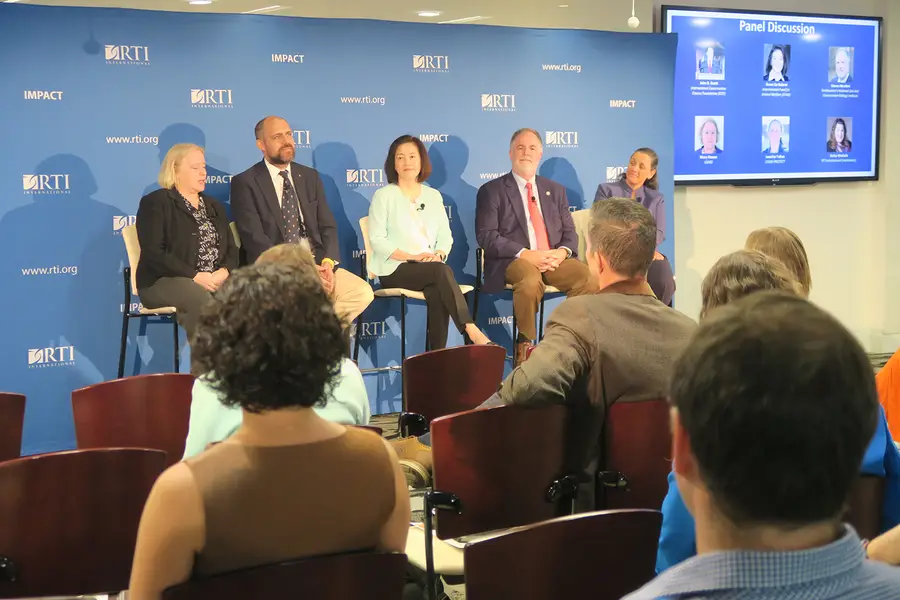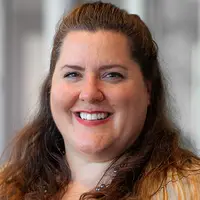Last month, RTI highlighted the importance of engaging the private sector in conservation efforts for long-term, sustainable international development efforts through a panel discussion on the topic.
We brought together a variety of key experts in the conservation sector who have partnered with the private sector in impactful, solution-oriented work. Our panelists represented sectors such as marine conservation, natural resource land management, wildlife crime reduction, and engagement with political parties in conservation efforts, and have worked in Central and South America, Africa, China and Southeast Asia.
Development professionals would agree that engaging the private sector is fundamental to our work. Donors expect to engage the private sector, as their role is seen as providing an anchor to investment and sustainability in countries or areas where we work and strive for progress.
Simply partnering and sharing costs with the private sector was once considered sufficient. We are now seeing a shift toward a much more refined, mutually beneficial relationship with the private sector—particularly with respect to work in conservation.
We are seeing a pattern emerge where these relationships are not only helpful as catalysts, they have also become fundamental in showing progress in conservation. The expanse of our markets has put global eyes and ears in industries such as fisheries, wildlife trafficking (legal and illegal), as well as water and natural resource management. As a result, there is an increasing demand for more judicious steps in governing these environmental resources and how countries/regions use them. This has provided a market in and of itself for more sustainable, integrated and robust relationships with businesses working and thriving from the very resources they use to make a dollar.
I facilitated the panel of conservation experts to dive deeper on how they’re taking their relationships with the private sector beyond corporate social responsibility or leveraging funding for finite activities to create long-lasting impacts on the environment or on a company’s conservation efforts.

In working on illegal wildlife trade efforts, Grace Ge Gabriel from the International Fund for Animal Welfare explained that when she noticed trafficking of wildlife parts and products on Baidu (China’s largest search engine, similar to Google), she requested a meeting to discuss the possibilities of disabling this market with their assistance. As a result, IFAW and Baidu continue to work together to eliminate this usage of the online platform and discourage the illegal wildlife trade. Working together has also sparked conversations with law enforcement and other key stakeholders on how to use this information to catch those who are selling illegal goods online. What began as a conversation to gain insight and understanding has now made a real impact on wildlife trafficking.
We also heard how these relationships are greatly improved with effective communication—learning to speak the same language as our private-sector colleagues. All of the panelists agreed that understanding the private sector requires effort to be able to relate to or understand their vantage points.
With their goals and strategy in mind, we can determine much more effective ways to collaborate and reach both parties’ end goals. The President of the ICCF Group, John Gantt, illustrated this point with his work supporting policy reform. One of the largest fishing companies worked with ICCF to discuss how to improve fishing practices, as it wanted to ensure its product stayed high quality without hurting its bottom line. The company realized that it was following stricter guidelines than its competitors; as a result, there was a potential for overfishing in certain locations, jeopardizing the industry’s output and profit overall. Under ICCF’s marine conservation caucus, the group was able to discuss and agree on higher standards. This levels the playing field in the private sector, conserves the supply, and retains commodity and environmental integrity.
Steve Monfort from the Smithsonian Institution talked about the importance of training students in both conservation and other fields. As a researcher himself, and now the John and Adrienne Mars Director of the Smithsonian National Zoo and Conservation Biology Institute, Steve has his own experiences implementing work that requires more than just the researcher lens. He noted that the next generation of conservationists should understand and study other sectors and how they relate in order to recognize shared interests. This highlights the need—and movement toward—effective private sector integration on conservation program progress.
The panel provided great insight into how conservation efforts cannot stand alone—they are a fundamental part of governance that can no longer be overlooked. They showed how environmental professionals can engage the private sector in a plethora of ways. Perhaps we need to continue this conversation with a follow-on panel discussion. Stay tuned!

